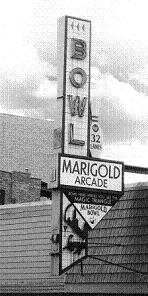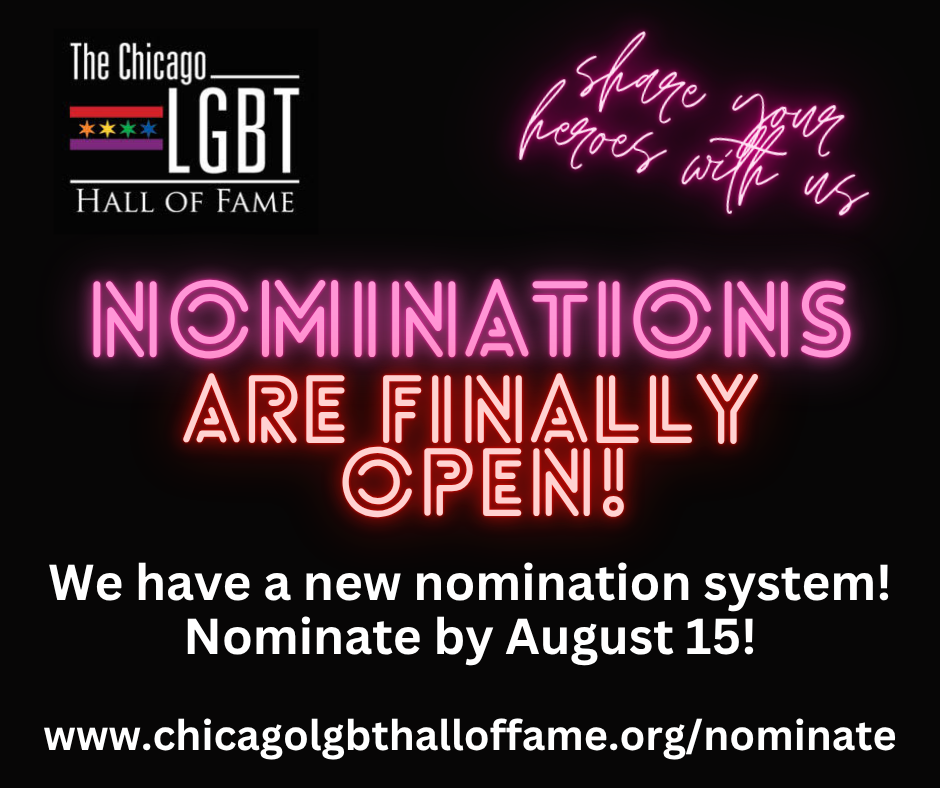FRIEND OF THE COMMUNITY | Inducted 2006
Marigold Bowl (1941-2004) and the Fagenholz Family, were early advocates for diversity after WWII and for establishing, in the mid-1970s, gay bowling leagues that were some of the first openly gay social organizations in Chicago – and that were followed by additional gay and lesbian leagues, the annual Chicago Pride Invitational bowling tournament, the Strike Against AIDS benefit, and support for DirectAID, Howard Brown Health Clinic, and Season of Concern. The Fagenholz family of proprietors stood as a beacon of inclusiveness in Chicago’s Lakeview neighborhood.
Marigold Bowl opened in 1941 at 828 West Grace Street, near the corner of Broadway and Halsted Street. It was owned and operated by Fred Fagenholz and his wife, Myrtle, and became a neighborhood mainstay during World War II, often running seven days a week, 24 hours a day, to accommodate Chicago’s defense workers.
It was in the postwar era that Fred Fagenholz distinguished himself as an advocate for diversity. He disliked the prejudice of the time, and his completely open hiring policies led to a rainbow of ethnicities and cultures working together. He allowed a Japanese American bowling league into his alleys at a time when others were barring them.
Fred Fagenholz died in 1955, and management was taken over by his wife, Myrtle, and his sons, Howard and Robert. During the late 1960s, when some parts of Chicago were experiencing economic depression, Marigold Bowl kept its doors open to all in the neighborhood. In the mid-1970s, a gay group, Dignity/Chicago, applied for a league designation at Marigold Bowl. The Dignity bowlers (followed closely by the Lincoln Park Lagooners) constituted one of the first social gay organizations to be formed in post- Stonewall Chicago, and Marigold Bowl welcomed them—in the tradition of Fred Fagenholz—with open lanes.
In the 1980s, as North Halsted Street boomed along with the Chicago gay and lesbian movement, Marigold Bowl was there to provide support and entertainment. Besides hosting gay male leagues such as the Metropolitan Sports Association’s and the Windy City Rollers, the lesbian community was also represented by teams from Augie’s & CK’s and the Closet bars. The yearly Chicago Pride Invitational tournament took place at Marigold. During the height of the AIDS crisis, Marigold Bowl hosted Strike Against AIDS events and many functions for the DirectAID organization.
Myrtle Fagenholz died in 1987, but sons Robert and Howard plus grandson Freddy continued their family’s legacy by maintaining operations within the neighborhood’s growing gay and lesbian community. Robert was active with the board of the Howard Brown Memorial Clinic (now Howard Brown Health Center). The Actors’ Equity HIV charity, Season of Concern, had a friend in Howard Fagenholz, who would raise money every year through Marigold.
In a gentrifying neighborhood, Marigold Bowl closed in 2004, silencing a vital neighborhood meeting and charity outlet for gay and lesbian Chicagoans. Because of the open hearts of the Fagenholz family—Fred, Myrtle, Howard, Robert, and Freddy—Marigold Bowl lives in the hearts of the bowling community that found its home and connections there.

